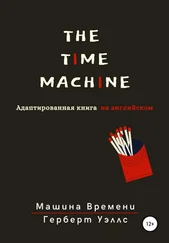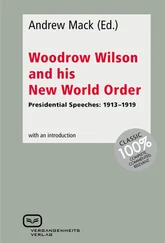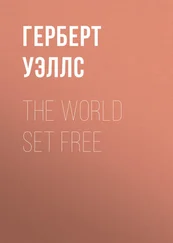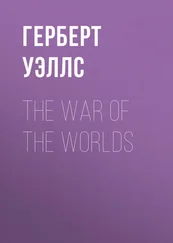Герберт Уэллс - The New World Order
Здесь есть возможность читать онлайн «Герберт Уэллс - The New World Order» весь текст электронной книги совершенно бесплатно (целиком полную версию без сокращений). В некоторых случаях можно слушать аудио, скачать через торрент в формате fb2 и присутствует краткое содержание. Год выпуска: 1940, Жанр: Политика, Публицистика, на английском языке. Описание произведения, (предисловие) а так же отзывы посетителей доступны на портале библиотеки ЛибКат.
- Название:The New World Order
- Автор:
- Жанр:
- Год:1940
- ISBN:нет данных
- Рейтинг книги:4 / 5. Голосов: 1
-
Избранное:Добавить в избранное
- Отзывы:
-
Ваша оценка:
- 80
- 1
- 2
- 3
- 4
- 5
The New World Order: краткое содержание, описание и аннотация
Предлагаем к чтению аннотацию, описание, краткое содержание или предисловие (зависит от того, что написал сам автор книги «The New World Order»). Если вы не нашли необходимую информацию о книге — напишите в комментариях, мы постараемся отыскать её.
The New World Order — читать онлайн бесплатно полную книгу (весь текст) целиком
Ниже представлен текст книги, разбитый по страницам. Система сохранения места последней прочитанной страницы, позволяет с удобством читать онлайн бесплатно книгу «The New World Order», без необходимости каждый раз заново искать на чём Вы остановились. Поставьте закладку, и сможете в любой момент перейти на страницу, на которой закончили чтение.
Интервал:
Закладка:
12. WORLD ORDER IN BEING
There will be no day of days then when a new world order comes into being. Step by step and here and there it will arrive, and even as it comes into being it will develop fresh perspectives, discover unsuspected problems and go on to new adventures. No man, no group of men, will ever be singled out as its father or founder. For its maker will be not this man nor that man nor any man but Man, that being who is in some measure in every one of us. World order will be, like science, like most inventions, a social product, an innumerable number of personalities will have lived fine lives, pouring their best into the collective achievement.
We can find a small-scale parallel to the probable development of a new world order in the history of flying. Less than a third of a century ago, ninety-nine people out of a hundred would have told you that flying was impossible; kites and balloons and possibly even a navigable balloon, they could imagine; they had known of such things for a hundred years; but a heavier than air machine, flying in defiance of wind and gravity! that they KNEW was nonsense. The would-be aviator was the typical comic inventor. Any fool could laugh at him. Now consider how completely the air is conquered.
And who did it? Nobody and everybody. Twenty thousand brains or so, each contributing a notion, a device, an amplification. They stimulated one another; they took off from one another. They were like excited ganglia in a larger brain sending their impulses to and fro. They were people of the most diverse race and colour. You can write down perhaps a hundred people or so who have figured conspicuously in the air, and when you examine the r�le they have played, you will find for the most part that they are mere notorieties of the Lindbergh type who have put themselves modestly but firmly in the limelight and can lay no valid claim to any effective contribution whatever. You will find many disputes about records and priority in making this or that particular step, but the lines of suggestion, the growth and elaboration of the idea, have been an altogether untraceable process. It has been going on for not more than a third of a century, under our very eyes, and no one can say precisely how it came about. One man said "Why not this?" and tried it, and another said "Why not that?" A vast miscellany of people had one idea in common, an idea as old as D�dalus, the idea that "Man can fly". Suddenly, swiftly, it GOT ABOUT-that is the only phrase you can use-that flying was attainable. And man, man as a social being, turned his mind to it seriously, and flew.
So it will certainly be with the new world order, if ever it is attained. A growing miscellany of people are saying-it is GETTING ABOUT-that "World Pax is possible", a World Pax in which men will be both united and free and creative. It is of no importance at all that nearly every man of fifty and over receives the idea with a pitying smile. Its chief dangers are the dogmatist and the would-be "leader" who will try to suppress every collateral line of work which does not minister to his supremacy. This movement must be, and it must remain, many-headed. Suppose the world had decided that Santos Dumont or Hiram Maxim was the heaven-sent Master of the Air, had given him the right to appoint a successor and subjected all experiments to his inspired control. We should probably have the Air Master now, with an applauding retinue of yes-men, following the hops of some clumsy, useless and extremely dangerous apparatus across country with the utmost dignity and self-satisfaction.
Yet that is precisely how we still set about our political and social problems.
Bearing this essential fact in mind that the Peace of Man can only be attained, if it is attained at all, by an advance upon a long and various front, at varying speed and with diverse equipment, keeping direction only by a common faith in the triple need for collectivism, law and research, we realise the impossibility of drawing any picture of the new order as though it was as settled and stable as the old order imagined itself to be. The new order will be incessant; things will never stop happening, and so it defies any Utopian description. But we may nevertheless assemble a number of possibilities that will be increasingly realisable as the tide of disintegration ebbs and the new order is revealed.
To begin with we have to realise certain peculiarities of human behaviour that are all too disregarded in general political speculation. We have considered the very important role that may be played in our contemporary difficulties by a clear statement of the Rights of Man, and we have sketched such a Declaration. There is not an item in that Declaration, I believe, which a man will not consider to be a reasonable demand-so far as he himself is concerned. He will subscribe to it in that spirit very readily. But when he is asked not only to subscribe to it as something he has to concede by that same gesture to everybody else in the world, but as something for which he has to make all the sacrifices necessary for its practical realisation, he will discover a reluctance to "go so far as that". He will find a serious resistance welling up from his sub-conscious and trying to justify itself in his thoughts.
The things he will tell you will be very variable; but the word "premature" will play a large part in it. He will display a tremendous tenderness and consideration with which you have never credited him before, for servants, for workers, for aliens and particularly for aliens of a different colour from himself. They will hurt themselves with all this dangerous liberty. Are they FIT, he will ask you, for all this freedom? "Candidly, are they fit for it?" He will be slightly offended if you will say, "As fit as you are". He will say in a slightly amused tone, "But how CAN you say that?" and then going off rather at a tangent, "I am afraid you idealise your fellow-creatures."
As you press him, you will find this kindliness evaporating from his resistance altogether. He is now concerned about the general beauty and loveliness of the world. He will protest that this new Magna Carta will reduce all the world to "a dead level of uniformity". You will ask him why must a world of free-men be uniform and at a dead level? You will get no adequate reply. It is an assumption of vital importance to him and he must cling to it. He has been accustomed to associate "free" and "equal", and has never been bright-minded enough to take these two words apart and have a good look at them separately. He is likely to fall back at this stage upon that Bible of the impotent genteel, Huxley's Brave New World, and implore you to read it. You brush that disagreeable fantasy aside and continue to press him. He says that nature has made men unequal, and you reply that that is no reason for exaggerating the fact. The more unequal and various their gifts, the greater is the necessity for a Magna Carta to protect them from one another. Then he will talk of robbing life of the picturesque and the romantic and you will have some difficulty in getting these words defined. Sooner or later it will grow clear that he finds the prospect of a world in which "Jack's as good as his Master" unpleasant to the last degree.
If you still probe him with questions and leading suggestions, you will begin to realise how large a part the NEED FOR GLORY OVER HIS FELLOWS plays in his composition (and incidentally you will note, please, your own secret satisfaction in carrying the argument against him). It will become clear to you, if you collate the specimen under examination with the behaviour of children, yourself and the people about you, under what urgent necessity they are for the sense of triumph, of being better and doing better than their fellows, and having it felt and recognised by someone. It is a deeper, steadier impulse than sexual lust; it is a hunger. It is the clue to the unlovingness of so much sexual life, to sadistic impulses, to avarice, hoarding and endless ungainful cheating and treachery which gives men the sense of getting the better of someone even if they do not get the upper hand.
Читать дальшеИнтервал:
Закладка:
Похожие книги на «The New World Order»
Представляем Вашему вниманию похожие книги на «The New World Order» списком для выбора. Мы отобрали схожую по названию и смыслу литературу в надежде предоставить читателям больше вариантов отыскать новые, интересные, ещё непрочитанные произведения.
Обсуждение, отзывы о книге «The New World Order» и просто собственные мнения читателей. Оставьте ваши комментарии, напишите, что Вы думаете о произведении, его смысле или главных героях. Укажите что конкретно понравилось, а что нет, и почему Вы так считаете.
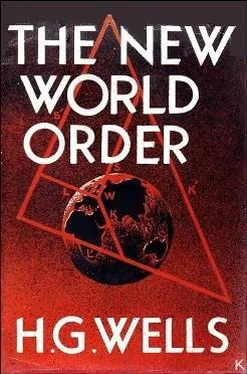
![Герберт Уэллс - The War of the Worlds [С англо-русским словарем]](/books/26611/gerbert-uells-the-war-of-the-worlds-s-anglo-thumb.webp)

